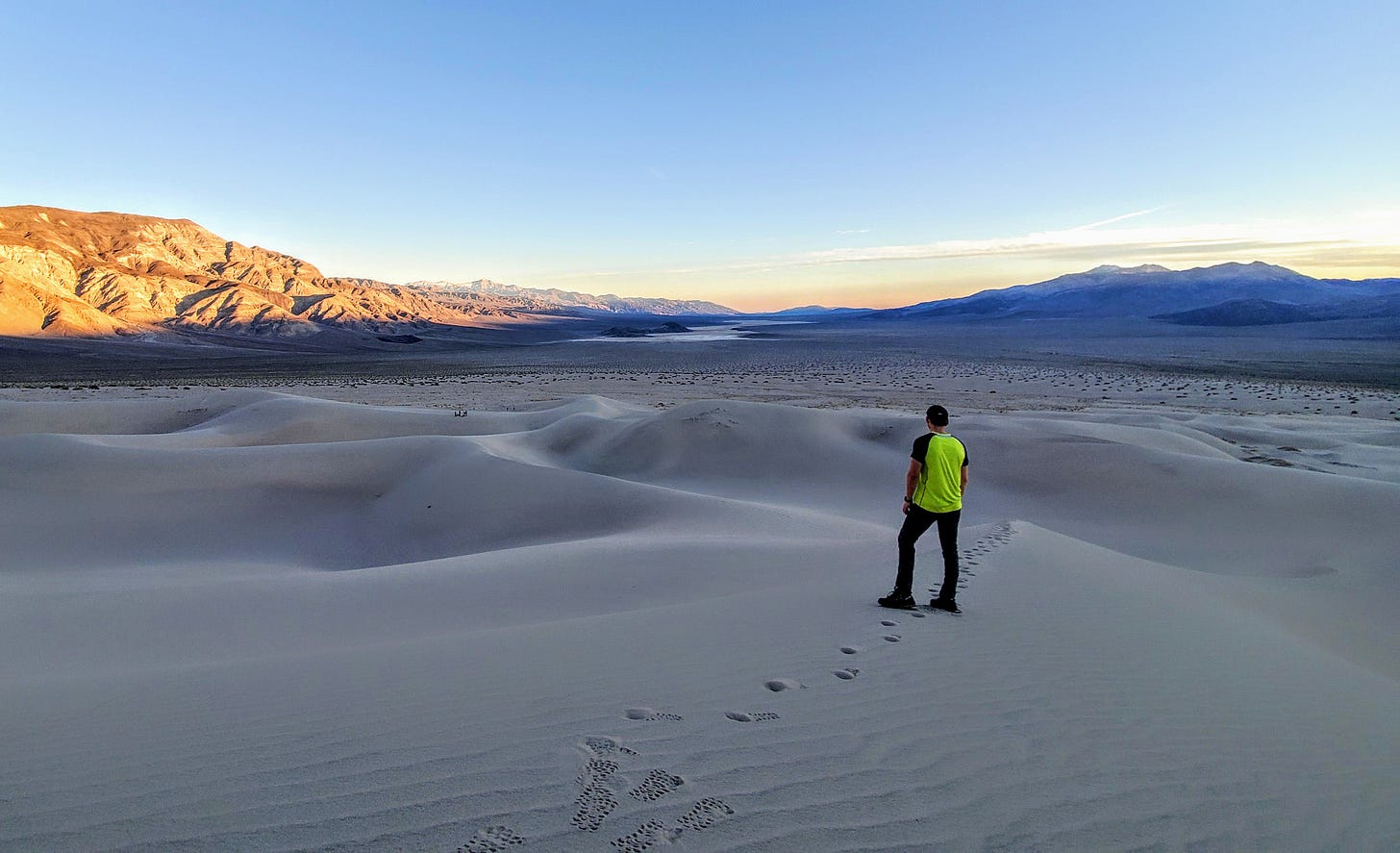what was my 2020 all about
life lessons from an insane year
What a year. 2020 has taught me a lot. Here are some of my biggest lessons.
Just try shit. This became clear to me in the early phases of the pandemic. In March, MarsBio spun up a Covid response task force to try to tackle some of the most urgent issues we were seeing. We had to move quickly and act with imperfect information - it was better to build at-risk, then wait to gather data. We were willing to invest time upfront in undefined projects. A lot of them failed, but a few of them worked, like Corona Initiative, spinning up of diagnostic testing in LA through Curative, and delivering truckloads of hand sanitizer to LA Public Health, thanks to Solugen.
Ignorance is a superpower. Some problems are so big that the more you know, the less likely you are to even bother. Being somewhat ignorant (sometimes willfully) is a key attribute of startup founders - they have to suspend their disbelief in order to create something big. This is what makes scientific founders even more rare and impressive - they have had skepticism drilled into their heads for years, and they are still willing to build something novel, to ignore the evidence and try it. One way to frame this is the Buddhist principle of beginner’s mind - techies have taken to calling this “first principles.” Extreme optimism, mixed with anger at the status quo, undiluted by pre-conceptions, was the key to a lot of projects I started this year… in climate tech, vaccines, viral vectors, fertility, and biofuels.
Find people your “yes, and…” people. Key to improvisation is saying “yes, and…” to whatever your partner says - it keeps the conversation going, it opens doors, it expands the idea. This improv is key to building new stuff. There is very little value to saying no and closing the door, in particular at the ideation phase. It’s really been a joy to riff on ideas, to improvise with my partners at MarsBio and the founders we have invested it. These people are “yes, and” people, and they are building great things.
Make digital interaction a 2-way street. I read a stat somewhere that 90% of people watch, 9% of people interact, and 1% of people post on social media. The 90% part of my activity was draining and mind numbing - so I made it a point to only use it when I am interacting. I’ve built a brilliant network on Twitter and have had seriously illuminating interactions. This year especially, science Twitter has taught me so much.
The post-Covid world presents huge opportunities to tear down the institutions, regulations, and old ways of thinking that are holding us back. Could we be at the end of the great stagnation? I’m not sure, but this year has definitely reiterated the fact that the people at the top know less than we do. Every assumption about “the way things are done” must be questioned - especially in the context of new ideas, new science, and new models for collaboration. Why do universities have a monopoly on groups of young people working on science? Why aren’t there more open source science projects and communal efforts to analyze that data? Why isn’t there more funding for new interdisciplinary fields like quantum biology? What would happen if we gave everyone access to the best scientific tools and truly decentralized research?
Here’s to changing the world for the better in 2021.

